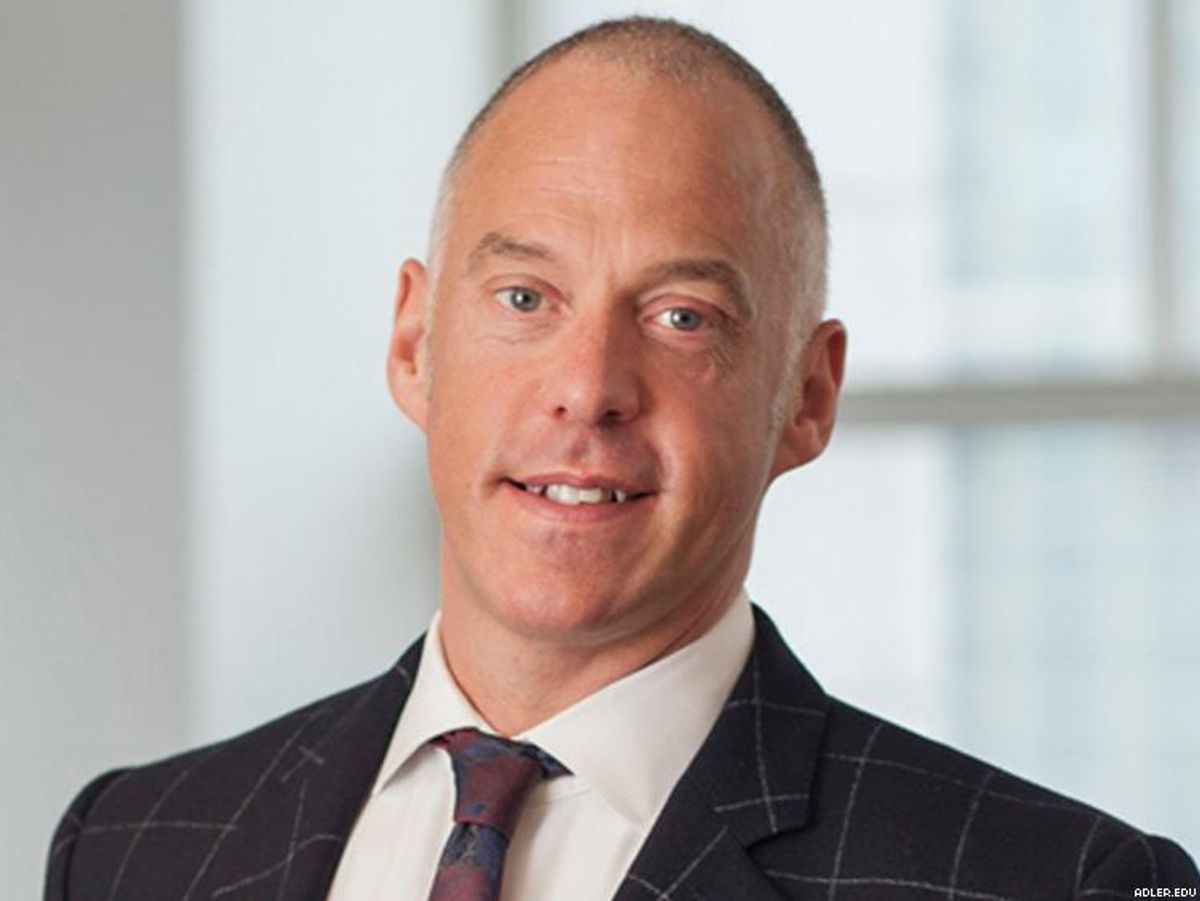Stigma
University President May be the First to Publicly Disclose His HIV-Positive Status

The President of Adler University, Dr. Raymond E. Crossman, publicly disclosed his status in response to Trump's hateful rhetoric.
March 15 2017 5:00 AM EST
By continuing to use our site, you agree to our Privacy Policy and Terms of Use.

The President of Adler University, Dr. Raymond E. Crossman, publicly disclosed his status in response to Trump's hateful rhetoric.
In 2003, Dr. Raymond E. Crossman was appointed the fifth president of Adler University, a school he describes as “explicitly focused on social justice.” One of only a handful of presidents of academic institutions to come out as gay, Crossman co-founded the organization, LGBTQ Presidents in Higher Education, and he made another milestone this week by publicly disclosing his HIV-positive status. In fact, he may be the first University President to do so.
In response to Trump’s divisive rhetoric, Crossman penned an essay for Salon.com, which was both eloquent and courageous. Not only does he share that he’s been living with HIV for 30 years, but he compares today’s Trump-era to being in New York City in the 1980s at the height of the AIDS crisis.
“Up until now, disclosure about my HIV status has been on a need-to-know basis,” Crossman wrote. “Why am I making it public now? Because of the parallels between [the 1980s] and now… It is difficult to explain what 1985 was like for me, when today’s prevailing narrative about the Reagan years and the 1980s is fond nostalgia. Fondly is not how I remember the 1980s. Sickness and death were everywhere around me. I did not get tested when the HIV test became available in 1985, because no treatment was available and because I was scared. But I was sure I had acquired the virus that was revealing itself across my friendship and partner circles.”
Crossman went on to paint the picture of what it was like being newly diagnosed in the '80s: our government knew there was an epidemic raging through marginalized communities, yet policies reflected indifference and inaction. President Reagan never said a word about AIDS until 1985, after over 5,000 known AIDS death occurred.
“I was certain — as were many gay men — that few cared if we all died, because we heard those words often and from many,” he continued. “I believed then that dying from AIDS was simply part of being gay. Today, I wonder whether many immigrants — and many people who might look like immigrants — feel now how I felt in the 1980s. I cannot know the contemporary experience of many marginalized groups, but I can imagine that many people — Muslims, women, people living with disabilities, people of color standing up against institutionalized racism, people at the intersection of these and many more identities — feel as abandoned by the state as I felt then.”
At 20, Crossman expected to be dead within a few years. And he didn’t have a clue as to how he’d be treated, much less where to find an outlet for his grief — that is, until he found wise elders who led him to Gay Men’s Health Crisis and ACT UP, where he began to advocate with other young men who also assumed they were going to die.
Crossman participated in protests with GMHC and ACT UP, including the "die-ins" where activists lay on the ground, pretending to be dead, in front of federal buildings; and the protests that unceremoniously closed down traffic to draw attention to the growing AIDS crisis. These actions were successful in leading to America's changing response to HIV, and Crossman hopes similar efforts could stop the damage Trump is inflicting on the nation. Disclosing his status now, as a visible force in higher education, is an important move to make.
“I find myself back in the 1980s as I listen to President Trump. But I’m not a kid,” he said. “I am instead the product of schooling by wise elders and by 30 years of HIV… Students at my university — a university that is explicitly focused on social justice — ask me what to do right now. Black and brown students ask how to stand up to hate and violence. Queer students ask what it means that the Department of Education [Betsy DeVos] is led by someone who has supported discrimination and conversion therapy. Students ask how to translate their passions into actions that will matter."
“I realize they think I’m an elder who has answers, and I see they’re more ready than I was in the 1980s,” he proclaimed. “I realize too I have some answers that I’ve learned from the successes and failures of the 1980s – lessons about leadership, strategy and focus of advocacy and political action. I know how to fight for my life and an oppressed community and how to win.”
Crossman is one of many mentors from that period who can teach the new generation of activists about direct action. Like the miniseries When We Rise, his words are a reminder that the LGBT community—and people living with HIV—have fought similar battles in the past. We can do it again.
Read Crossman's full essay at Salon.com.